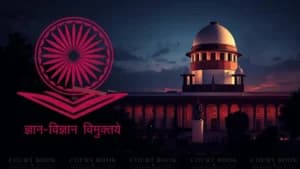In a significant ruling, the Bombay High Court has held that Section 37 of the Arbitration and Conciliation Act, 1996 is not an efficacious alternative remedy for landowners seeking enhanced solatium and interest under the National Highways Act, 1956. The Division Bench, comprising Justices M.S. Sonak and Jitendra Jain, made this observation while allowing a batch of writ petitions filed by landowners dissatisfied with the compensation awarded during land acquisition proceedings.
The petitions were filed under Article 226 of the Constitution after the Arbitrator failed to grant solatium and interest benefits in line with the Supreme Court’s judgment in Union of India v. Tarsem Singh [(2019) 9 SCC 304]. The Court noted that although the Principal District Judge (PDJ), Nashik, agreed with the petitioners’ claim for statutory benefits, he refrained from modifying the arbitral award due to a binding precedent in the Rishabhkumar v. Secretary to Government of India case.
The rule of exhaustion of alternate remedies is a self-imposed restriction. Before applying it, the Court must ensure that the alternative remedy is indeed efficacious, observed the Bench while rejecting the National Highways Authority of India’s (NHAI) contention that the petitions were not maintainable due to the availability of a remedy under Section 37 of the Arbitration Act.
The Court emphasized that both the Section 34 court and the appellate court under Section 37 are restricted from modifying arbitral awards to include statutory benefits like solatium and interest. Therefore, relegating the petitioners to such a remedy would be futile.
"There is no point in relegating the Petitioners to the remedy under Section 37 when the relief they claim cannot be granted under such proceedings," the Court said.
The Bench referred to the Supreme Court's recent decision in M/s Godrej Sara Lee Ltd v. Excise and Taxation Officer to reinforce that mere availability of an alternative remedy does not automatically bar a writ petition, especially when the issue is purely legal and undisputed.
Read Also:-Bombay High Court Rules Interim Relief Under Section 9 of Arbitration Act Requires Timely Action
The Court noted that the PDJ had already recorded NHAI’s willingness to pay the solatium component as per the Tarsem Singh ruling. The judges expressed disapproval of NHAI’s subsequent objections in the High Court, calling them "unfortunate" and "unfair."
These are statutory benefits, and the entitlement is never seriously disputed. Even the Principal District Judge held the Petitioners were entitled to such benefits given the decision in Tarsem Singh, the Court underlined.
Citing Articles 141 and 144 of the Constitution, the Bench reminded all authorities that the law declared by the Supreme Court is binding and must be implemented without delay or resistance.
Accordingly, the Court directed NHAI to disburse the statutory benefits of solatium and interest to all petitioners within four months, without requiring them to initiate contempt proceedings.
"We see nothing wrong in the Petitioners invoking the extraordinary jurisdiction of this Court under Article 226 of the Constitution of India," the Bench concluded.
Read Also:-Bombay High Court Refuses Relief to Law Student Suspended Over Posts Related to ‘Operation Sindoor’
The judgment was delivered in a group of connected petitions led by Kisanlal Bairudas Jain v. Union of India and included several other petitioners similarly affected by the denial of enhanced compensation. The ruling reaffirms the judiciary's commitment to upholding landowners' rights in accordance with Supreme Court precedents, particularly when statutory entitlements are at stake and procedural limitations hinder relief through conventional appellate routes.
Case Title – Kisanlal Bairudas Jain and Ors. v. Union of India
Neutral Citation – 2025: BHC- AC:21612-DB
Appearance-
For Petitioner - Mr. P. N. Joshi a/w Mr. Nikhil M. Pujari, Mr. Pratik Rahade
For Respondent - Mr. Sambahji Kharatmol i/b. Mr. Suhas P. Urgunde, Mr. Rakesh L. Singh a/w Ms. Heena Shaikh i/b. M. V. Kini & Co., Mr. Aditya R. Deolekar, Ms. S. R. Crasto, Mr. R. S. Pawar, Ms. M. S. Bane, Ms. V. R. Raje
Date – 09. 05. 2025















